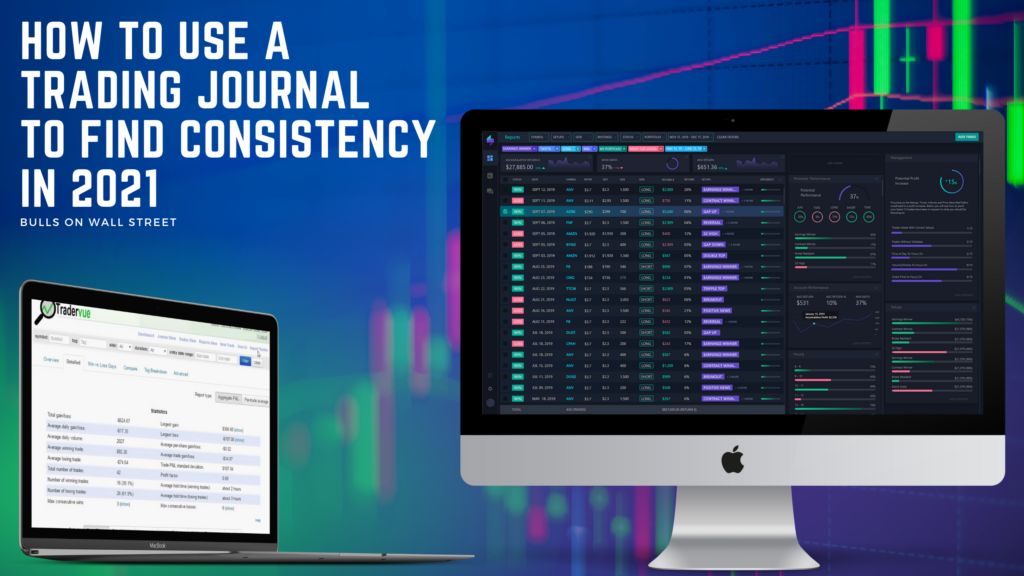What isn’t measured, cannot be improved. You will never find trading success without using a trading journal.
If you don’t document your trades, you will not be able to learn from your mistakes and grow.
Most traders know they should be journaling. But they don’t know why it is important, or how to do it correctly. Today’s blog will address both of these very important issues:
The Power of a Trading Journal
The goal of your trading journal is to eliminate what’s not working and scale up what is. Trading journals are one of the most boring parts about trading. Everyone just wants to be buying and selling stocks and making bank.
But the time you spend not trading is actually more important than you spend actually trading. Read that again. The fun part of trading is trading. The not fun, but most important part of actually making money trading, is journaling and education. This is the goal of a trading journal:
Regular Usage: Reports to Run Daily
Journals only work if they are used daily. The biggest mistakes most traders make: They have a trading journal, but don’t use it regularly!
We recommend doing the following on a daily basis:
Track Every Trade You Take
At the end of every trading day, you should record and reflect on every trade you took. You can use software like TraderSync (try out the software here) or Tradervue to upload your trades from whatever broker you use. They will have execution charts that show you all of your entries and exits. Seeing your execution charts will help you understand what you are doing wrong.
Notice and record the patterns in your trading.
Look at your losing trades and figure out the common mistakes, and then eliminate the behavior that is causing them. Look at all your winning trades, figure out what they have in common. Identify what patterns of behavior and setups your best trades had, and cut out everything else that isn’t working.
Track Every Different Setup You Take
When you upload and record your trades, you need to label the setup that you took. This is especially important if you are a new trader who does not have their niche setups established. Are you consistently winning on earnings breakout plays? Are you constantly losing on parabolic shorts?
Trading is a game where generalists do not make any money. When you are starting out, you need to have just one or two go-to setups that you can rely on to consistently extract income from the market. Tracking all the setups you take in your trading journal will show you what setups you perform best and worst on.
Tracking Your Profit Loss Ratio & Mistakes
Your profit loss ratio and your win rate are the two most important metrics for determining if you are a profitable trader. The risk vs reward on your trades matters just as much as your win rate. If you have a 90% win ratio but your profit loss ratio is 1:10 (meaning your winners are 1/10 the size of your losers), you are not a profitable trader. However, if you just have a 40% win rate but your average profit loss ratio is 3:1 on your trades, you will be profitable in the long run.
Do not stress about just having a high win rate. Focus on developing the patience to let your winners run so that you can have a good profit loss ratio so your win rate will not matter as much. This will also take a lot of the emotion out of losing.
You know that as long as you cut your losses where you are supposed to, you will be profitable in the long run. Never focus on day-to-day results when you are tracking your trades. Focus on your weekly and monthly performance will show you if you are heading in the right direction or not.
Weekly Routine
While daily reflection is important, zooming out and looking at the bigger picture trend is even more important.
There you have it. Journaling is the difference between being profitable, and not. No one else can do the work for you. Force yourself to do it after every trading day until it becomes a habit ingrained in your routine. Don’t hesitate to reach out with any questions!



